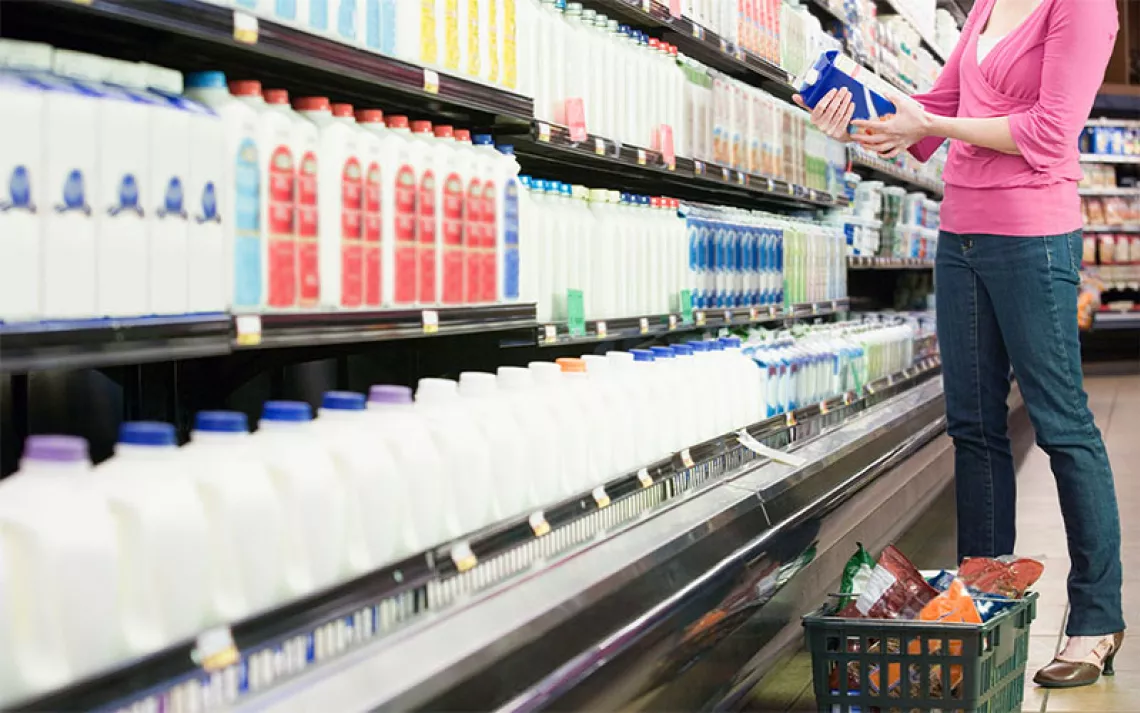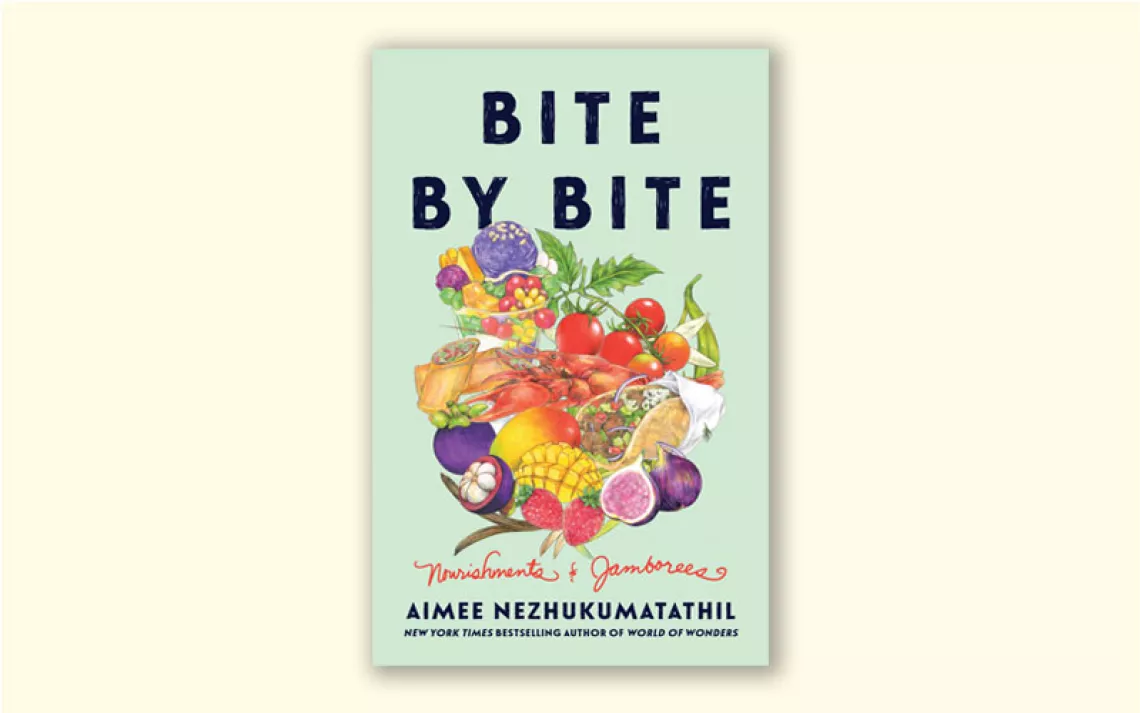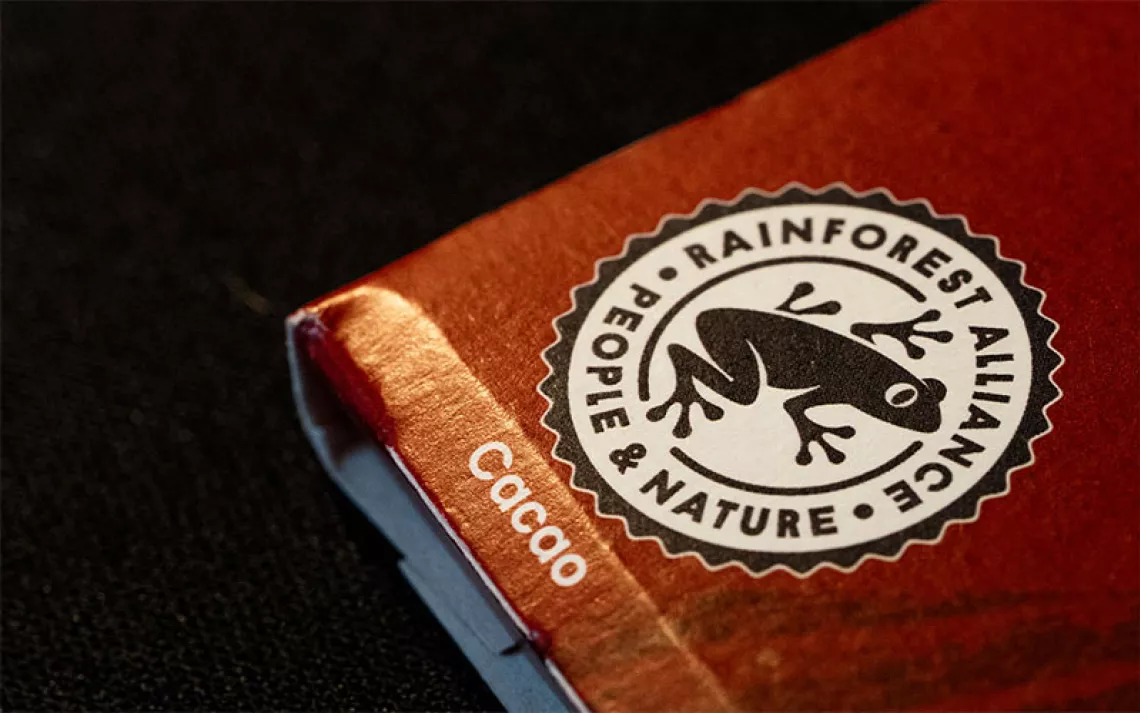It's Alive: A Guide to Some of the Best Fermented Food and Drink on the Market
Fermentation is in, thanks to new research on the benefits of having a healthy gut biome
The ancient process of fermentation is enjoying an unlikely resurgence, with products like sauerkraut and kombucha crowding grocery store shelves. That's partly because of enticing new research on the gut microbiome, linking the colonies of bacteria that live within us to so many aspects of our health. Feed your own flora with these delicacies, all made by companies working hard to protect their bit of the planet.

Operating out of a refurbished fruit cannery, FULL SAIL BREWING is sandwiched between two hop-growing regions in Hood River, Oregon—a perfect place to make beer. The brewery buys local hops and donates its spent grain to nearby farmers for use as livestock feed. It also operates an on-site water-treatment plant, which lightens the city's load by recapturing used water—its mash filter slashed annual use by 1 million gallons. Drink Full Sail's Amber beer—an acclaimed malty ale with pine and citrus touches—with seafood, grilled vegetables, or anything spicy. $9 for a six-pack, fullsailbrewing.com

Yes, chocolate is fermented—the process is key to transforming bitter cacao beans into something sweeter and more complex. Alex Whitmore, the founder of TAZA CHOCOLATE in Somerville, Massachusetts, gets his cacao directly from farmers in the Caribbean and Bolivia. Like most chocolate producers, they ferment the beans with the plants' own yeast and bacteria. Whitmore only does business with organic-certified, environmentally responsible outfits. Try Taza's Coffee Dark Chocolate Mexicano discs, which have an intense, fruity flavor and—since they're minimally processed—a gritty, rustic texture. $5 for a two-disc pack, tazachocolate.com

Kefir is a creamy, yogurt-like drink that's also fizzy, thanks to the yeast involved in its fermentation. MAPLE HILL CREAMERY, a collective of dairy farms in upstate New York, makes kefir using milk from grass-fed cows. It's committed to "regenerative farming," a set of agricultural techniques that preserve the land. The creamery's founders, Tim and Laura Joseph, spent years struggling to stay afloat while establishing their eco-practices, so now they pay it forward by helping other farms go grain-free. Their Strawberry Kefir features real fruit and full-fat milk for a clean, mild, subtly sweet flavor. $7 for a 32-ounce bottle, maplehillcreamery.com

To create HOSTA HILL's fermented foods, Maddie Elling and Abe Hunrichs grow their own cabbages, carrots, radishes, onions, and peppers on a four-acre plot of land in West Stockbridge, Massachusetts, tilling it with an electric tractor. Their Kimchi is a spicy melange of vegetables—sliced, salted, and mixed with fish sauce and rice flour. After fermenting for four weeks, the garlicky blend is hand-packed into glass jars, where it continues to age. "It's ever evolving, like cheese or wine," Elling says. $8 for a 16-ounce jar, hostahill.com

HEALTH-ADE KOMBUCHA wasn't always "a bubbly probiotic tea." It started out as a hair-loss tonic, based on a recipe created by Health-Ade founders Justin and Daina Trout and Vanessa Dew. Nowadays, their concoction has four ingredients: tea, sugar, water, and SCOBY ("symbiotic colony of bacteria and yeast"). After two weeks, the microbes convert the sweet tea into the company's organic, vegan kombucha, brewed in 2.5-gallon batches via an all-glass process. Try the popular Ginger Lemon flavor or the cidery Pink Lady Apple. $5 for a 16-ounce bottle, health-ade.com

Chef Kathryn Lukas honed her cooking skills as the former chef-owner of Das Augustenstüble, a restaurant in Stuttgart, Germany. When she moved back to California, she started FARMHOUSE CULTURE in 2008 to make traditional sauerkraut using the Golden State’s year-round supply of pesticide-free produce. The result is a raw food fermented simply with salt, the organic cabbage’s natural sugars, and the bacteria on its leaves. Try her Garlic Dill Pickle Kraut in potato salad, on hot dogs, or anywhere else you’d use pickles. $7 for a 16-ounce pouch, farmhouseculture.com
This article appeared in the September/October 2016 edition with the headline "Get Cultured."
 The Magazine of The Sierra Club
The Magazine of The Sierra Club



